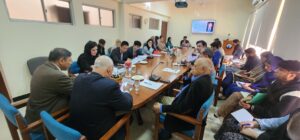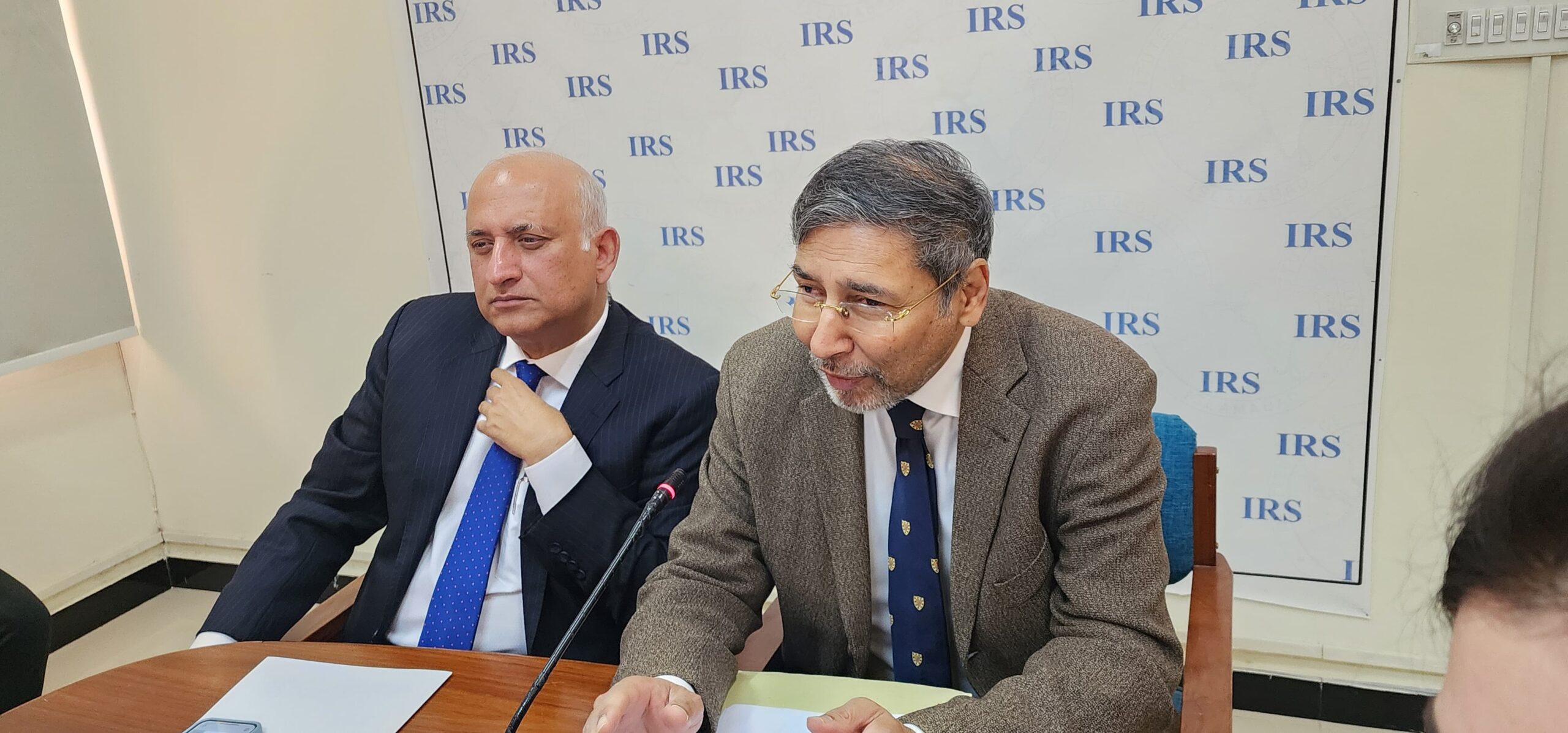WNAM REPORT: The Institute of Regional Studies (IRS) organized a talk on China Pakistan Economic Corridor 2.0: Impact, Challenges and Opportunities featuring a thought-provoking address by Mr. Haroon Sharif, Founder and Chairman of Pakistan Regional economic Forum (PREF), and former Minister of State and Chairman of Pakistan’s Board of Investment. Mr. Sharif shared his extensive insights based on years of experience in international development and economic diplomacy. The presentation delved into the evolving dynamics of the China-Pakistan Economic Corridor (CPEC), its transformative impact on Pakistan’s economy, and its future trajectory.
The session was opened by Ambassador Jauhar Saleem, President of the (IRS), who called the CPEC a game changer for Pakistan for building a foundation for fostering robust partnerships and driving key infrastructure and energy projects. He highlighted the remarkable achievements of the initial phase of CPEC, which has attracted $25 billion in direct investment to Pakistan over the past 11 years. He further elaborated on the relocation of Chinese industries to Pakistan, stressing the critical role this will play in boosting Pakistan’s industrial base. Additionally, Ambassador Saleem noted the potential of Pakistan’s youthful population, particularly in the IT sector, which could become a major asset in the growing digital economy.

While providing a critical analysis of CPEC’s impact, Mr. Haroon Sharif explained that many view CPEC as either a geopolitical shift or a massive infrastructure project, but in reality, it is an economic development approach based on connectivity. He stressed on understanding the concept of corridor which implies a connection between economic hubs in which large amount of economic resources and actors are concentrated along a defined geography.
Mr. Sharif argued that connectivity alone is not enough; it must be complemented by trade expansion and private sector participation. About the development of Special Economic Zones (SEZs) he underscored that merely setting up infrastructure is not enough—there must be a comprehensive policy framework, efficient governance, and adequate financing. Economic zones only thrive when there are joint ventures, investment-friendly policies, and structured governance models that attract investors. Mr. Sharif suggested overcoming the dependency mindset and adopt self-driven solution approach. Debt must be utilized to create productive assets. There was a consensus that Pakistan must transition from a debt-reliant model to private capital-driven economic activity.
He argued that real economic progress will not come from government-to-government (G2G) agreements alone but from a market-driven approach where private investors and businesses lead. Pakistan must create an economic environment that attracts sustainable investment. People need to take ownership which will also help address the security challenges. Mr. Haroon suggested evidence-based policies by addressing the institutional and knowledge gaps and building financial institutions to support industrial growth. The importance of de-risking investments was also highlighted, particularly in areas like security, policy stability, exit strategies, and judicial clarity. One solution proposed was multi-country joint ventures involving China, Pakistan, and Saudi Arabia, as well as corporate governance models that offer exit options to investors to make Pakistan a more attractive investment destination.
The discussion was concluded with a suggestion to shift from input-driven policies to outcome-based strategies, ensuring the economic zones become productive. The key takeaway was that Pakistan must not repeat past mistakes but instead adopt a proactive, production oriented and market-driven approach to economic transformation.
The session, moderated by Ms. Nabila Jaffer, Research Analyst for the China Program, brought together a diverse audience, including researchers, scholars, diplomats, and students. The hybrid session saw participation from universities, with many joining virtually via Zoom.
There was a consensus on continued collaboration between China, Pakistan, and other regional partners to unlock the full potential of CPEC 2.0, ensuring it becomes a lasting engine of economic prosperity for Pakistan


